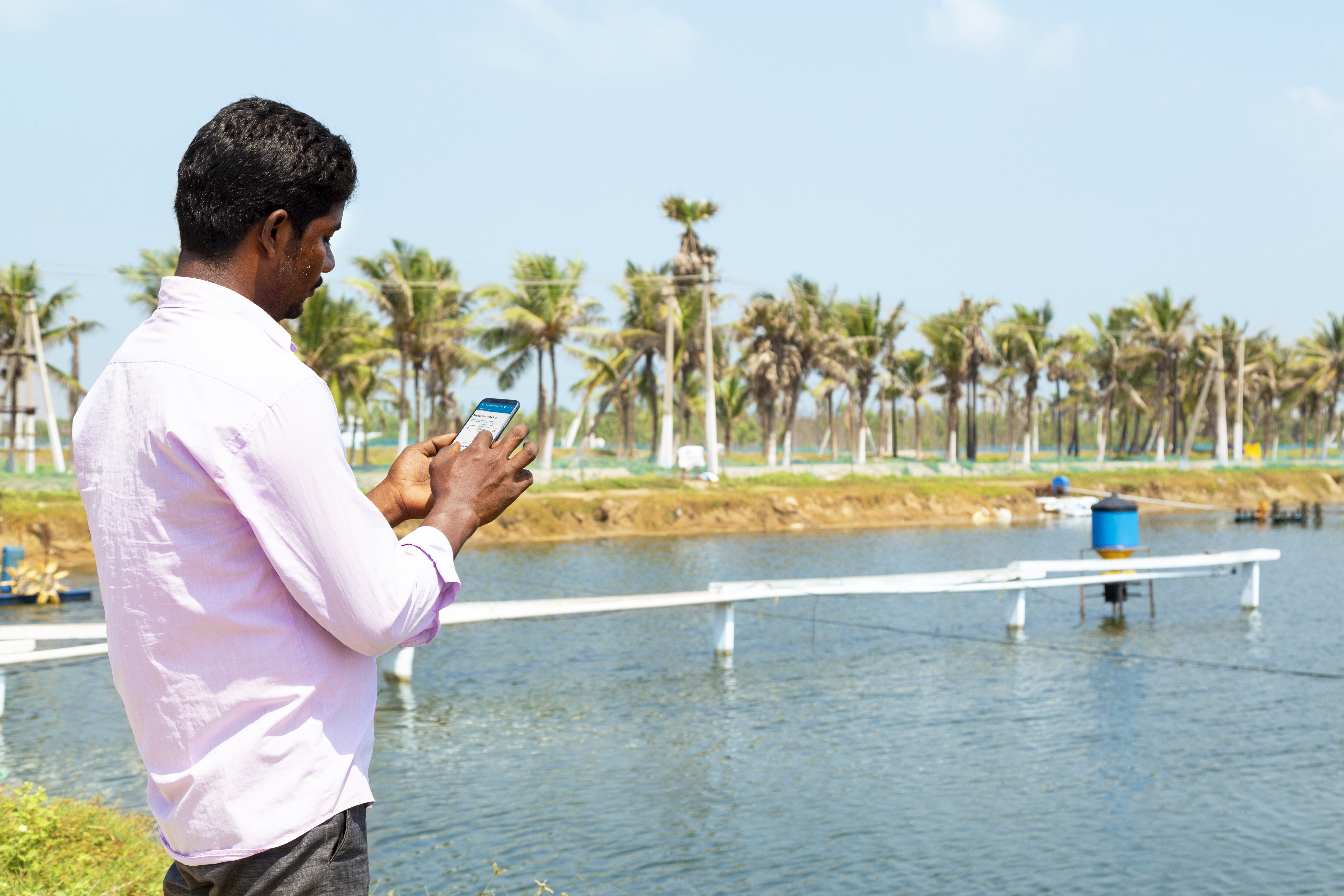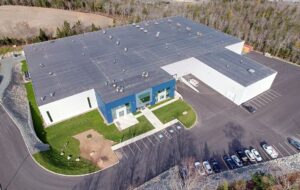Canadian startup XpertSea hopes its portable technology will replace some of the antiquated methods that many producers still use in the world’s biggest animal protein industry.
There has been a lot of discussion about animal protein lately, primarily when it comes to beef, poultry, and the rapid growth of plant-based or lab-grown alternatives. What many consumers fail to realize, however, is that aquaculture is the fastest-growing sector in animal protein production, with a market value of $13.3 billion. By 2030, 62% of food fish will come from aquaculture taking place within existing water systems as well as on land.
Despite its massive footprint, however, it’s an industry lacking in technological development, not for lack of demand though.
“Aquaculture is still very fragmented, but most important are the differences between species and territories. For example, salmon aquaculture in Norway is technologically advanced, while shrimp production in Vietnam is more rudimentary. While there are still few technology companies in the market, we are excited to see new entrants. The more technologies become available, the more farmers will be comfortable using them, which will benefit the whole industry. We are often asked who are our competitors are, and the truth is that while we don’t have direct competitors, we do have a fierce one and it’s called ‘the status quo,’” XpertSea CEO and co-founder Valérie Robitaille tells AgFunderNews.
XpertSea combines a smart device that gathers aquaculture data with an intelligence platform that analyzes the data and provides actionable business insights. Having access to this information allows farms and hatcheries to optimize production and make data-driven decisions around when to feed and what to harvest all with the aim of maximizing profitability, according to Robitaille.
“Since the revival of marine species aquaculture in the 1970s, warm water producers have relied on manual inspection and intuition when making critical decisions about growth, health and harvesting,” said Robitaille. “These traditional methods have often led to disease, bad feeding regimes, and harvesting organisms too early or too late. The result is inefficiency, waste, and financial losses.”
The Quebec-based startup’s first customers were shrimp farms and hatcheries in Asia and Latin America. It’s since expanded its offering to Europe and North America, as well as diversifying the platform to provide intel for fish such as tilapia, sea bass, and salmonids. Animal health providers, feed and genetics companies, as well as research centers and universities have also employed XpertSea’s technology.
For this food tech spotlight, we spoke with Robitaille to learn more about how the startup’s technology hopes to change the aquaculture industry.
When did you launch and what growth stage are you at currently as a company?
In 2011, Cody Andrews and I began developing commercial applications using optics and photonics in marine environments. We received immediate interest from aquaculture producers and so XpertSea was founded to transform aquaculture into a modern, efficient and sustainable source of food for our planet. Our platform is in use in over 50 countries and we have local representatives and partners in Europe, Asia, and South America.
In the past year, we closed a Series A, doubled our workforce, ramped up R&D, and launched a new growth platform that offers hatcheries and farms an all-new set of tools and capabilities for managing their operations efficiently and profitably.
What is your product?
Our AI-based solution enables aquaculture producers to automate animal data collection, monitor organism health, and address problems early. The hardware component consists of smart aquaculture equipment called the XperCount, which is a portable device that can count, size and weigh tiny aquatic organisms with greater than 95% accuracy in minutes. The XperCount feeds data into an online Growth Platform, which analyzes many variables and gives producers access to key information about their production from anywhere at any time. This allows them to optimize growth, adjust feed and additives, harvest at the right time, and ship accurately.
What are some of the challenges that you’ve faced and how did you overcome them?
Modern aquaculture is a young industry that’s technologically far behind agriculture. As an early developer of technologies for aquaculture, we had to travel the world and explain the huge impact that reliable data can have on production and profitability. It’s not uncommon for us to be in India or Vietnam talking to a shrimp farmer about how artificial intelligence and computer vision can transform her business.
On the technical side, we needed to build a team capable of inventing and innovating entirely novel solutions using advanced technologies. To create a device that can count, size and weigh tiny organisms as they swim about, our engineers had to combine machine learning, optics, computer vision, Internet of Things, Big Data and several other technologies. Then they visited farms and hatcheries around the world so the AI could study individual species for months at a time and learn to assess them accurately.
What’s been the most surprising aspect of your startup journey so far?
I’ve been amazed by the number of people willing to help move our business forward. I think one reason for this is the importance of our mission: using Canadian know-how to help feed the world. Aquaculture will be essential to feeding everyone, and I believe that’s why our mission resonates with so many audiences, from consumers to farmers to investors.
Are there any other startups that you looked to for guidance or as a model when you were getting started/as you scale up?
We look at what the AgTech industry has achieved and we see the potential for aquaculture to make similar strides in adopting technological innovation. We’re inspired by many companies, especially those using data to empower farmers. Companies like Farmers Business Network, Granular, Blue River Technology, and The Climate Corporation come to mind.
What’s your fundraising experience been like? How have your investors added value beyond capital? What do you look for in an investor?
We were very fortunate that early believers like angel investor Hamnett Hill, YUL Ventures, and Founder Fuel believed in us and our vision back in 2014 and are still active in our business today. Our most recent Series A integrated an amazing group of diversified investors, and we could not have hoped for a better balance of industry and technology knowledge. Obvious Ventures, Real Ventures, and edō Capital bring tremendous value and support to our technology direction, our business model and our expansion across the 40 markets we currently operate in. Aqua-Spark is the leading aquaculture investment fund, and the network and knowledge they bring in the aquaculture space is amazing.
Has there been a lot of investor interest in aquaculture technology?
When raising the Series A, we encountered many investors interested in aquaculture, and many of the big players took our meetings. While they were intrigued by the industry, there was too much they did not know to de-risk their investment to a level that was comfortable.
I think as aquaculture becomes too important to be ignored, many more investors are becoming educated about the industry. This can be seen in the increasing number of venture deals being made in aquaculture lately.
Have you entered or won any tech competitions? If so, was it beneficial?
We entered a few competitions, winning some but not others. The value of a competition depends on the event’s credibility and the audience that’s paying attention. It’s important to consider the opportunity cost: it can be time-consuming to prepare for these events when there is so much work to do in the actual business, so these opportunities have to be chosen wisely.
Any other advice for other startups out there?
Surround yourself with the right team; it’s often been said because it’s true. Having people who are engaged and who you can trust is key. You should never underestimate how important a positive work environment is to company culture. I recommend seeking talent with varied backgrounds and with different work experience. Look for people who can bring new ideas and ways of doing things to the table, people who are curious and can learn and adapt. Once you have them, do your best to hold on to them.
Know your business inside and out. Investors feel more confident when talking to someone who knows what they’re talking about. I would take the time to learn all the parts that go toward making your startup a viable opportunity.
Finally, look for investors that have the industry knowledge and network specific to your company’s needs. We’ve been lucky to have supportive investors from the start, which has made a world of difference.




